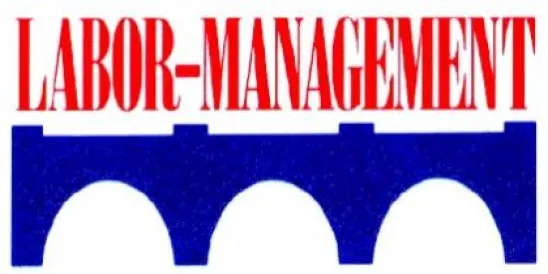In a move that may be considered by many as the Obama administration's boldest attempt to impose employer neutrality in connection with union organizing and collective bargaining, the U.S.Department of Labor's (DOL's) Office of Labor Management Standards (OLMS) has proposed a sweeping expansion of employer and consultant reporting requirements for so-called "persuader activity." If adopted, these regulations would have important implications for employers and consultants dealing with union and nonunion employee groups. Indeed, covered persuader activity can occur in the context of union-organizing activity, corporate campaigns, normal collective bargaining, strike preparation, and day-to-day employee and labor relations. In addition, consultants for purposes of the reporting requirements include both outside legal counsel and labor relations consultants.
The Labor-Management Reporting and Disclosure Act (LMRDA), 29 U.S.C. §§ 401 et seq., has for more than 50 years required employers, unions, and labor consultants to make certain financial disclosures to the DOL. For most of that time, many of the LMRDA's provisions were not strictly interpreted or enforced by the DOL. In 2004, under the Bush administration, OLMS announced an enforcement initiative designed to target payments received by unions and union officials from employers. This information must be reported on DOL Forms LM-10 (employer report), LM-2 (union report), and Form LM-30 (union official report). Under the Obama administration, OLMS's focus has shifted to employer and consultant reporting for persuader activity.
Background on LMRDA Persuader Reporting Requirements
The LMRDA generally requires employer and labor relations consultants to report to OLMS any agreement or arrangement to engage in activity that has a direct or indirect object of (1) persuading employees with respect to the exercise of their rights to organize and bargain collectively or (2) supplying an employer with information concerning the activities of employees or a labor organization regarding a labor dispute involving such employer. Id. § 433(b). Employers must report this information on Form LM-10, and consultants must report on Forms LM-20 and LM-21, and the form must be signed by the president or chief executive of the reporting organization. The LM-10 and LM-21 reports are due annually, and the LM-20 report must be filed by the consultant within 30 days after entering into each agreement with an employer to engage in persuader activity. Id. All of the reports require a detailed description of the persuader activity and the amount paid for the services. OLMS may pursue civil enforcement of the reporting obligations, id. § 440, with the potential for criminal prosecution in circumstances with willful violations,id. § 439.
No LMRDA reporting is required for the compensation (i.e., salary) paid to an employer's "regular employees" who engage in activities designed to persuade employees. Id. § 433(e). In addition, LMRDA Section 203(c) also includes statutory exemptions for certain "representational" activities by attorneys and consultants. These additional exemptions cover representation of an employer in collective bargaining negotiations and advice and representation in judicial, administrative, or arbitral proceedings. 29 U.S.C. § 433(c); DOL LMRDA Interpretative Manual §§ 261.200, 265.400, 265.505 (Manual).
The LMRDA also exempts from reporting services that are provided "by reason of [the consultant's] giving or agreeing to give advice to such employer." 29 U.S.C. § 433(c). This so-called advice exemption has long protected from reporting a wide range of consulting or advisory services provided to employers by labor relations consultants, law firms, and similar organizations. In practice, reporting is required only if the consultant had direct, persuasive communications with employees. SeeManual § 265.005. Consultants have been free to draft or revise speeches, develop employer campaign strategies, and train managers and supervisors to engage in so-called "persuader" activities, all without triggering the need to file the LM-20 and LM-10 reports. Courts have upheld DOL's longstanding interpretation of the advice exemption as long as consultants and lawyers refrained from giving direct speeches or presentations to employees. See, e.g., United Auto., Aerospace., & Agric. Implement Workers of Am. v. Dole, 869 F.2d 616 (D.C. Cir. 1989).
With respect to supplying employers with information, this provision has been the subject of little guidance or reporting over the last 50 years. The LMRDA requires LM-10 and LM-20 reporting for "supply[ing] an employer with information concerning the activities of employees or a labor organization in connection with a labor dispute involving such employer." 29 U.S.C. § 433(a)(4), 433(b)(2). Despite this language, the Manual references this statutory provision only in the context of activities akin to in-person spying, espionage, and surveillance of union activities. SeeManual §§ 264.100, 264.200.
Proposed Limitation of Advice Exemption and Expansion of Reporting Requirements
Advice Exemption
OLMS's proposed rule would significantly narrow the advice exemption in Section 203(c), such that many previously nonreportable activities would be subject to reporting on Forms LM-10 and LM-20. The proposed rule would revise the LM-10 and LM-20 instructions to limit the definition of "advice" to only an "oral or written recommendation regarding a decision or a course of conduct." Examples of the few activities that would fall within the new, narrower advice exemption include the following:
- Consulting or advising an employer on what employer representatives may lawfully say to employees.
- Ensuring employer compliance with the law (National Labor Relations Act (NLRA) or otherwise).
- Providing guidance on National Labor Relations Board (NLRB) practice or procedure.
This contrasts with the definition of "persuader activity," which would be expanded to include "providing material or communications to, or engaging in other actions, conduct, or communications on behalf of an employer that, in whole or in part, have the object directly or indirectly to persuade employees concerning their right to organize or bargain collectively."
The following activities would become reportable under this definition if they are designed to persuade employees on union organizing and collective bargaining:
- Drafting, revising, or providing written materials for presentation, dissemination, or distribution to employees.
- Drafting, revising, or providing a speech for presentation to employees.
- Drafting, revising, or providing audiovisual or multimedia presentations for presentation, dissemination, or distribution to employees.
- Drafting, revising, or providing website content for employees.
- Planning individual or group employee meetings.
- Training supervisors or employer representatives to conduct individual or group employee meetings.
- Coordinating or directing the activities of supervisors or employer representatives.
- Developing or revising personnel policies or practices.
- Deciding which employees to target for persuader activity or disciplinary action.
Materials would be considered "persuasive" if they had the object of "influenc[ing] the decisions of employees with respect to forming, joining or assisting a union, collective bargaining, or any protected concerted activity (such as a strike) in the workplace."
If any of the above activities involve both reportable activity and exempt "advice," the activity would nonetheless be reportable. OLMS explains that information subject to the attorney-client privilege need not be disclosed, but offers little guidance as to how this would work in practice given the expanded reporting requirements.
Supplying Information
In addition to expanding the reportability of "persuader" activities, OLMS's proposed interpretation in the June 21, 2011 Notice of Proposed Rulemaking (NPRM) appears-with little discussion-to expand the reporting obligation for "information supplying activities" by consultants and attorneys. OLMS's proposed overhaul to the LM-20 and LM-10 reporting obligations seems to dramatically expand the concept of "supplying information" on labor organizations to include consultant information from the following sources:
- Research or investigation concerning employees or labor organizations.
- Supervisors or employer representatives.
- Employees, employee representatives, or union meetings.
- Surveillance of employees or union representatives (video, audio, Internet, or in person).
Employers and consultants would be left with only a few types of services or activities that clearly would not trigger an LM-10 or LM-20 report in connection with consultant information supplying activities.
Other Important Considerations Under New Interpretation of Advice Exemption
LM-21 Reporting
Any attorney or consultant who files an LM-20 report also must annually file the LM‑21 "Receipts and Disbursements" report, which contains additional financial information for the relevant fiscal year. 29 U.S.C. § 433(b). This additional information includes receipts and disbursements not only for the employer for whom the consultant provided persuader activities, but also for all other employers for whom the consultant or attorney supplied any "labor relations advice or services." Id.; Manual § 260.300. Notably, "labor relations advice or services" is broader than "persuader activities" and refers to general advice or services concerning employee organizing or concerted activities, collective bargaining activities, and any advice bearing on the employer-employee relationship. Manual § 269.520. DOL and some U.S. Courts of Appeal have interpreted the LMRDA to require this broad reporting on the LM-21 report. See, e.g., Humphreys, Hutcheson & Mosely v. Donovan, 755 F.2d 1211 (6th Cir. 1985). The current NPRM does not address the significant concerns related to the LM-21 report.
Intersection with Executive Order 13,494
The implementation of the new regulations on LM-10 and LM-20 reporting obligations runs in conjunction with Executive Order 13,494, issued by President Obama on January 30, 2009. Exec. Order No. 13,494, 74 Fed. Reg. 6101 (Feb. 4, 2009). The Executive Order treats as unallowable all costs incurred by federal contractors in undertaking activities to persuade employees to exercise or not to exercise, or concerning the manner of exercising, the right to organize and bargain collectively through representatives of the employees' own choosing. Unallowable costs shall be excluded from any billing, claim, proposal, or disbursement applicable to any such federal government contract. While DOL issued an NPRM on April 14, 2010 regarding Executive Order 13,494, final regulations have not yet been forthcoming. It is possible that these federal contractor regulations have been delayed while OLMS prepared to overhaul LMRDA reporting of "persuader" activities in order to align Executive Order 13,494 and the LMRDA's obligations. Federal contractors should keep in mind the potential impact of the "unallowability" requirements in addition to LMRDA reporting obligations.
Public Comments on June 21, 2011 NPRM
The public may submit comments on the proposed interpretation of the advice exemption and the other reporting changes found in the June 21, 2011 NPRM no later than August 22, 2011. Final implementation of the rules is likely to occur in late 2011 or in early 2012, subject to administrative delays or legal challenges.
Concluding Thoughts
The process to finalize the June 21, 2011 NPRM and implement the revised interpretation of the advice exemption will undoubtedly spur significant partisan debate and foster additional acrimony between the employer and labor communities. It is a virtual certainty that legal challenges will be brought against any final revision that narrows the advice exemption, with such challenges leaving the revised interpretation in a state of uncertainty that could last beyond the end of the Obama administration's current term in 2013.



 />i
/>i

